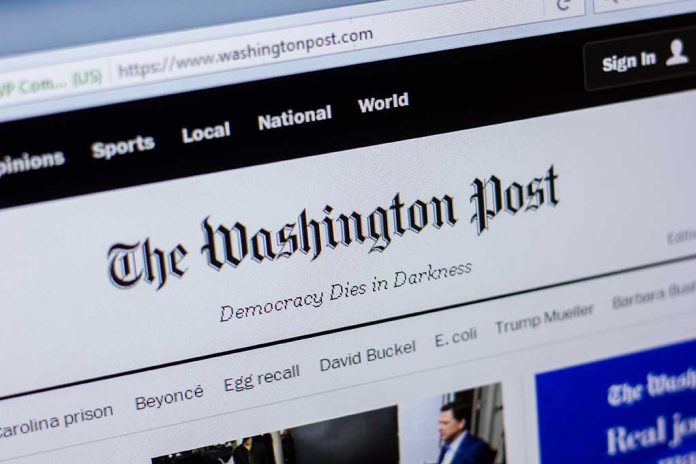
The Washington Post’s decision not to endorse a presidential candidate has cost the newspaper over 200,000 subscriptions, sparking internal turmoil and public debate.
At a Glance
- The Washington Post lost over 200,000 digital subscriptions after declining to endorse a presidential candidate.
- Owner Jeff Bezos blocked the endorsement of Kamala Harris less than two weeks before Election Day.
- The decision led to internal resignations and a joint column criticizing the move.
- The controversy highlights challenges in maintaining journalistic independence amid business interests.
A Costly Decision
The Washington Post, a long-standing pillar of American journalism, has found itself at the center of a firestorm after deciding not to endorse a presidential candidate for the first time in 36 years. This decision, reportedly made by owner Jeff Bezos, has resulted in the loss of over 200,000 digital subscriptions, representing about 8% of the paper’s paid circulation.
The backlash has been swift and severe, with readers and journalists alike questioning the paper’s commitment to informing the public. The timing of the decision, less than two weeks before Election Day, has only added fuel to the fire.
Internal Turmoil and Public Criticism
The non-endorsement has caused significant internal strife at the Post. A group of 17 columnists, including Pulitzer Prize winners, penned a joint column calling the decision a “terrible mistake.” This unprecedented show of dissent within the ranks of the paper underscores the gravity of the situation.
Former Executive Editor Martin Baron didn’t mince words, describing the decision as “disturbing spinelessness at an institution famed for courage.” The criticism extends beyond the walls of the Post, with media experts and readers alike questioning the paper’s commitment to its journalistic duty.
The Bezos Factor
At the heart of this controversy is Jeff Bezos, the billionaire owner of the Washington Post and founder of Amazon. Reports suggest that Bezos personally intervened to block the endorsement of Kamala Harris, raising questions about the influence of his business interests on the paper’s editorial decisions.
An endorsement of Kamala Harris was drafted by Post staffers but had yet to be published, according to sources who spoke on the condition of anonymity.
The decision not to publish was made by The Post’s owner, Jeff Bezos, according to the same sources. https://t.co/WC9fovTcvB
— The Washington Post (@washingtonpost) October 25, 2024
“No quid pro quo of any kind is at work here,” writes Jeff Bezos in his opinion piece.
While Bezos has denied any ulterior motives, the controversy has reignited debates about the challenges of maintaining journalistic independence when ownership has diverse business interests. Bezos’s other ventures, including Blue Origin’s government contracts, have been cited as potential conflicts of interest.
This situation exemplifies the need for transparency and accountability in media ownership, particularly when it comes to giving a voice to conservative viewpoints in a landscape where the same often suffer censorship.
A Broader Trend
The Washington Post’s decision is part of a larger trend in the newspaper industry. The number of newspapers endorsing presidential candidates has been declining, with only 54 of the largest newspapers making endorsements in 2020, compared to 92 in 2008. This shift is attributed to financial struggles and a desire to avoid alienating subscribers in an increasingly polarized political landscape.
As the dust settles on this controversy, the Washington Post faces an uphill battle to regain the trust of its readers and reassert its role as a leading voice in American journalism. The incident serves as a stark reminder of the delicate balance between editorial independence and the business realities of modern media organizations.








